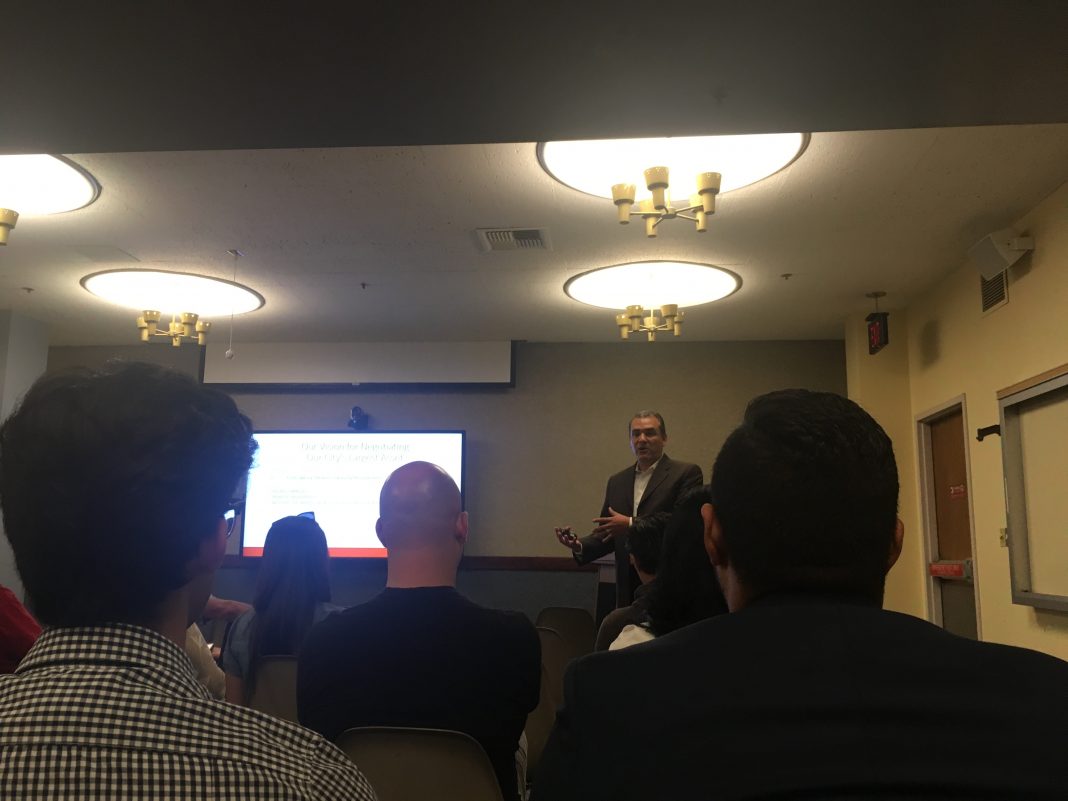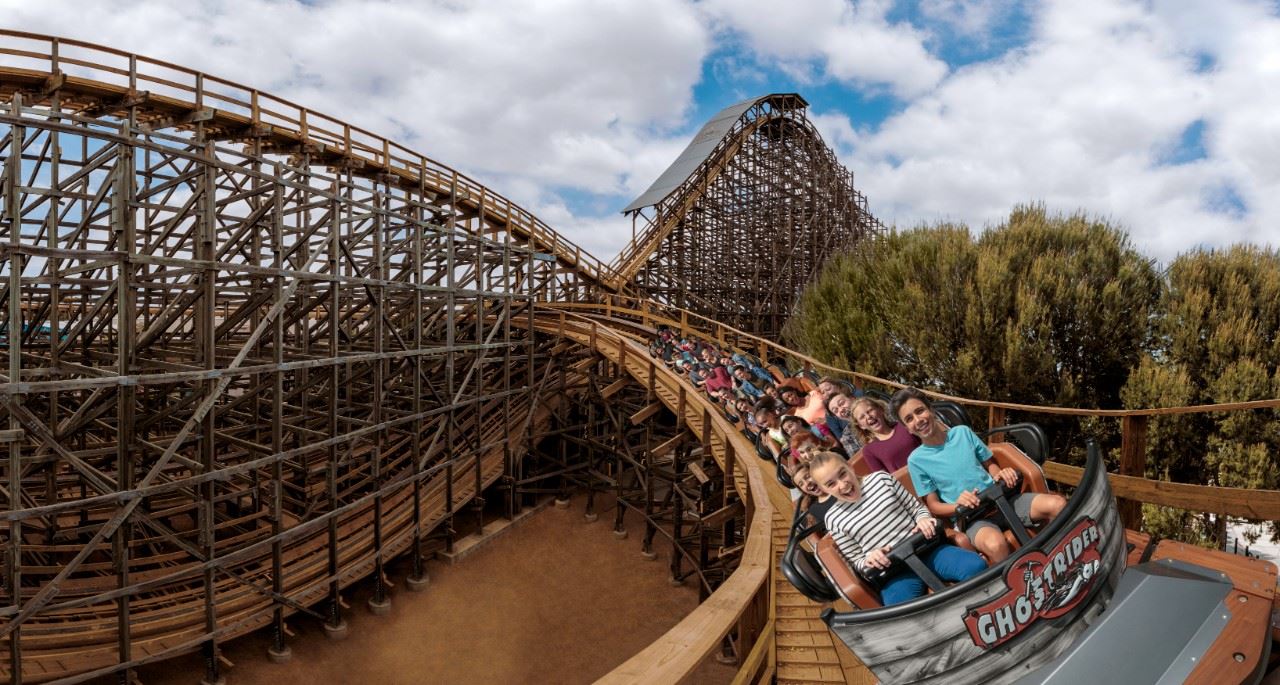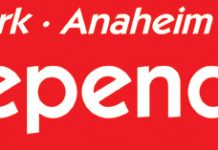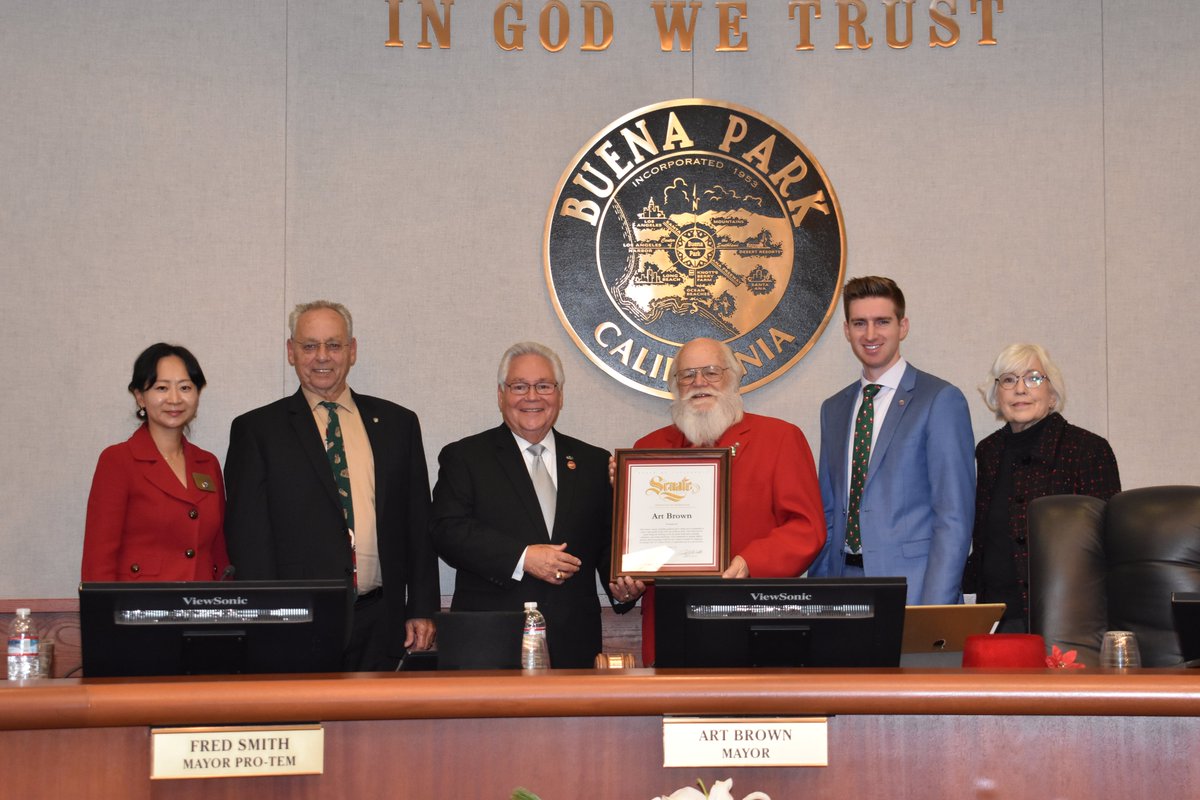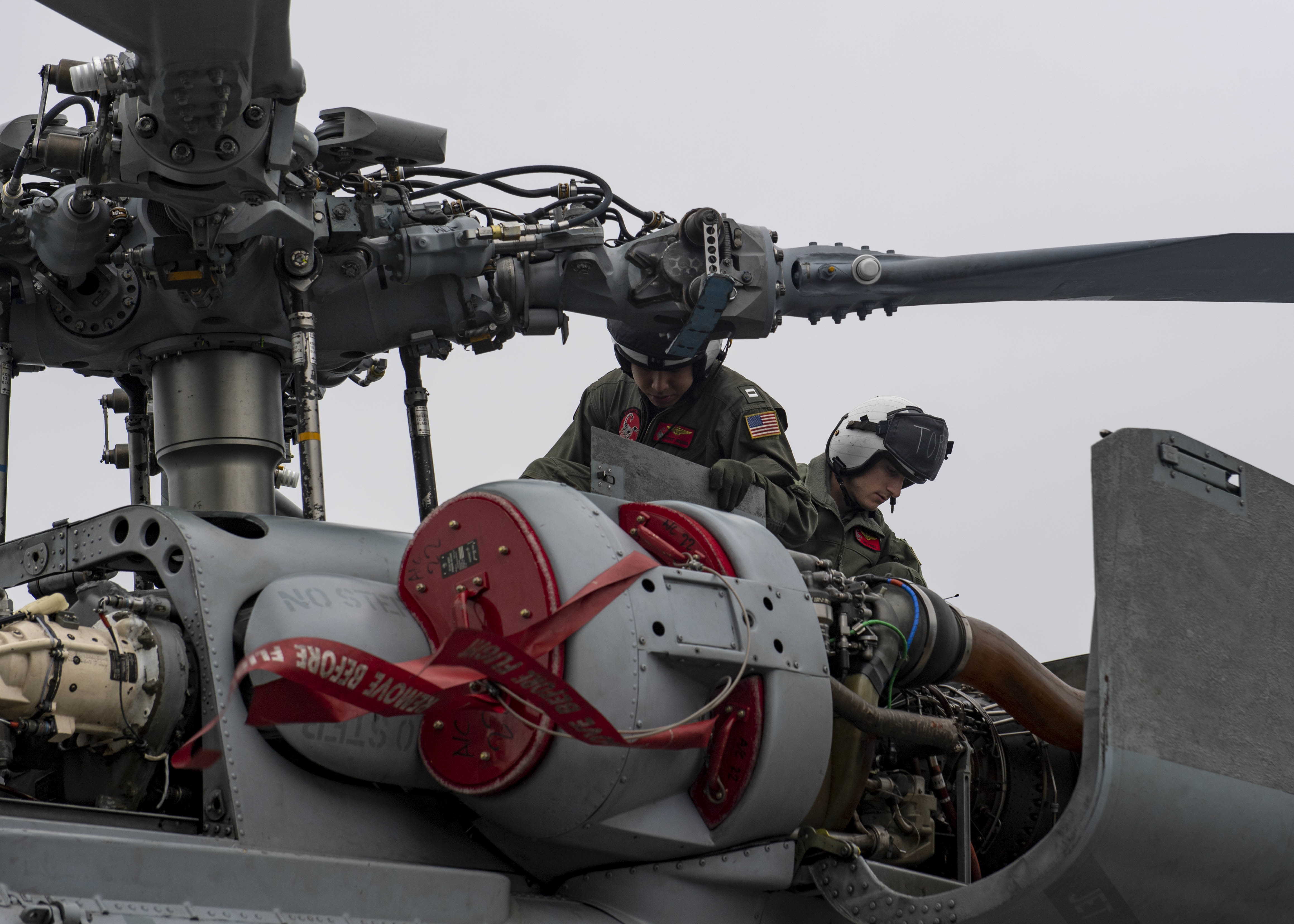Moreno candidly answers questions, states his approach and vocalizes skepticism of Mayor’s approach
By Brooklynn Wong
Anaheim residents got a rare opportunity for some direct interface with the city about the Angel Stadium negotiations when City Councilman Jose Moreno held two community meetings at city libraries recently.
The city is preparing to begin negotiations with Angels owner Arte Moreno to decide whether the team, and the stadium, will stay in Anaheim or move elsewhere. They have a goal of coming up with a proposed agreement at the end of this calendar year.
About 30 residents, business owners, city staff members and reporters showed up to Moreno’s first meeting Wednesday, August 21, at Anaheim Central Library, as Moreno presented his hopes for the negotiations, and fielded the many questions residents had.
Moreno framed his presentation as wanting to take an open-minded approach to negotiations, taking stock of what the land around Angel Stadium is worth, and looking to see what would warrant the best deal for the city, even if that means the city losing its beloved team. He characterized Mayor Harry Sidhu, of whom he is a frequent critic, of looking to keep the team here “whatever it takes.”
Moreno said while he also hopes the city will try hard to keep the team here, it won’t be catastrophic if that’s not the best way to go, as the land under and around the stadium is “155 acres of valuable land in Orange County, off two freeways.”
Moreno said the city should be open to selling.
Many have criticized and questioned Mayor Sidhu’s involvement in the negotiations, as his mayoral campaign did receive money from Angels personnel. And this January, shortly after he was sworn in as Mayor, he took it upon himself to meet with Arte Moreno to discuss renewing the talks, which some saw as out of line.
Councilman Moreno said there is good reason for people to question the Mayor’s involvement in the talks.
He said he values transparency and public review and input in this process.
“There needs to be a lot of resident pushback,” Moreno said.
When one resident spoke up at Moreno’s meeting, saying the Mayor should be taken off the negotiating team, Moreno agreed, but said the entire Council will present the Mayor with what they want him to negotiate with on behalf of them all.
Moreno admitted that he feels what is on the table now would be a “sweetheart deal” for the Angels, and wants to see the city get what it deserves.
He said his desires in a new deal would include having the city of Anaheim in the team name, and having a percentage of ticket sales and parking revenue reinvested in the city’s libraries, green space, community centers and public safety.
Under the current lease, the city receives between one and two million dollars per year in revenue generated from the stadium. This includes $2 on every ticket sold after 2.6 million during the season, 25% of additional parking revenue above $4 million, and 25% of additional revenue above $2 million from events.
The team’s name and city affiliation has been a big factor; although the city is currently officially named the “Los Angeles Angels of Anaheim,” it is frequently associated with the city of Los Angeles and marketed that way in its merchandise and media.
Moreno said, “Anaheim is one of thirty cities privileged to have Major League Baseball, but what’s the privilege worth if the city’s not in the name?”
Mayor Sidhu has presented a different take on the team name. He held a press conference shortly before last Tuesday’s City Council Meeting, in which he restated his perspective and goals, and said that including “Anaheim” prominently in the team name should not be a make-or-break point. He pointed to teams like the New England Patriots and the Golden State Warriors, named for regions rather than cities, saying he doesn’t believe this takes away from the specific host city benefiting from the team and stadium being there. He suggested that just keeping the stadium here, even if “Anaheim” did not factor more prominently into the team name, is what will benefit the city, as people will trickle out of the stadium and spend time and money at Anaheim businesses, and the city of Anaheim will be shown on television on every broadcast, bringing attention to the city.
Councilman Moreno responded to this at the ensuing Council Meeting, saying he could not support the team continuing to be associated with what he called “our rival city,” Los Angeles.
Negotiations have not officially started yet, but the Angels are expected to submit a proposal to the city in October.
Also earlier this year, Steven Norris of Norris Realty Advisors of Pasadena was hired to appraise the value of the land around the stadium. The current appraisal is in draft form and is expected to be submitted soon. The residents at Moreno’s community meeting also expressed skepticism and frustration over how long the appraisal is taking. One real estate professional in the audience said he could estimate the value of the land in his head on the spot, knowing the value per acre of such land, and multiplying it by 155.
Long Beach has made a strong play for the team, but Moreno said the team ending up there “doesn’t look like it would happen.”
One resident asked whether the ultimate decision is something the public will be able to vote on. Moreno said no, it will be determined by the Council.
He talked up the experience that certain city staff members on the negotiating team bring to the table, saying the City Manager has experience negotiating stadiums, and the City Attorney went through a similar process when the city was negotiating the Honda Center deal.
Mayor Sidhu published an op-ed shortly after Moreno’s first meeting, expounding on his approach to the talks. His piece can be found on the city’s website.
A long and lively discussion took place at the August 27 City Council Meeting, with many residents weighing in, along with each Councilmember.
Where Moreno and others have advocated for open, transparent negotiations where all should be free to weigh in, Mayor Pro Tem Lucille Kring said that in the Ducks/Honda Center negotiating, all decisions were made in closed session, and that everyone should trust the negotiating team now to consider all the input they’ve heard, but then be left to make the final decision, not make the decision “on the dais.”
Likewise, Councilman Steve Faessel said a similar process to this one “worked pretty well for the Honda Center deal,” and expressed support for the negotiating team.
He oversees District 5, which Angel Stadium sits within, and he said that more parks, a grocery store, and retail are needed in the Platinum Triangle, and that the city should give significant consideration to the fact that the 155 acres the stadium sits on hold great potential for uses like that.
To the negotiating team, Faessel said, “Godspeed; you’re going to need it. This is the biggest negotiation in the city in a long long time.”
The negotiating team will meet September 13, then will receive the Angels’ proposal in October.
Councilman Moreno once again voiced his concerns, saying that leaves “two months to negotiate the largest asset in our city…I’m worried.” He wondered aloud if that is even possible, and even if it is, if that’s too rushed of a deadline.
He encouraged the Mayor to be cautious, be levelheaded and “not hit the panic button” once the negotiations heat up and are on a short timeline.
The City Council will next meet on September 10.



